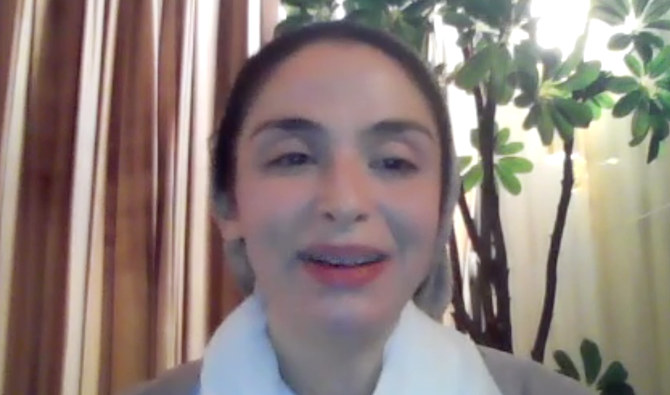RIYADH: The King Abdul Aziz Center for World Culture (Ithra) is continuing to cater for its online audience, despite the center having reopened to the public post-lockdown.
Ithra’s theater department is offering online sessions on a monthly basis, covering online classes and interviews with creatives free for anyone interested in attending.
As part of this online session, Ithra’s theater coordinator Hadeel Mufti is offering online classes in performance arts.
In an interview with Arab News, Mufti spoke about her extensive experience, her hopes for the future of the Kingdom’s rapidly growing performance industry, and her best advice for aspiring actors, directors, and performers.
“Watching professional performances at a young age created that ‘wow factor’ for me,” she told Arab News.
“I also joined a drama club at school where I started writing productions, directing, and acting in school plays. Since then I knew this was something I wanted to pursue. I enjoy the collaborative work and unity in creating productions, as well as that sense of achievement when a vision becomes a reality that can be enjoyed with others.”
Mufti got a bachelor’s degree in drama and theatrical studies from Royal Holloway in London before traveling to Dubai, where she gained experience with several performing arts companies. She obtained a master’s degree in theater directing from the Guildford School of Acting.
Since graduating in 2017, she has lived in the Eastern Province of Saudi Arabia and works as a theater coordinator at Ithra.
She is also a performing arts trainer who enjoys working with other actors and sharing her knowledge. Her areas of expertise include physical theater, puppetry, and improve.
I’ve learned a lot about the performing arts abroad, and now coming back to Saudi Arabia, I feel like it’s time I share what I’ve learned and show how fascinating theater really is.
Hadeel Mufti, Theater Coordinator
“I’ve always been passionate about working with people and developing projects collectively. I’ve learned a lot about the performing arts abroad, and now coming back to Saudi Arabia, I feel like it’s time I share what I’ve learned and show how fascinating theater really is,” she said.
Mufti has wanted to be a director since she was at school, a career choice she was happy to say she thought was more viable now than it ever was in the past.
“Back in school, I told everyone that I aspired to be a theater director. It would always get followed by questions such as, ‘how will I pursue it?,’ ‘why do I want it?’ and ‘where will I do it?’ I guess Saudi wasn’t ready for this back then. And now, Saudi Arabia is moving toward an artistic vision, introducing this new realm of theater and performance as a new creative perspective,” she said.
She believed that the changes happening in Saudi Arabia now, along with current initiatives and support for the arts from the government, meant that Saudi youth had opportunities that were previously lacking.
“This is a dream that the youth of today can work toward. What’s great is that there is that push and encouragement from the Saudi Theater (and Performing Arts) Authority and the Saudi National Theater, driving us toward this new field of performing arts.”
Mufti said the evolving nature of the performing arts industry meant people may be a little fearful of trying something new and outside their comfort zone, but she advised them to go ahead and try it out anyway.
“If you see yourself as an amateur in the arts then that’s great, you can push yourself to be somebody who is experienced or somebody who is professional in the field. Apart from performing, you can work behind the curtain and I’m sure you’ll find something that suits you. Either way, the theater is fun, challenging, and ever-changing,” she said.



























